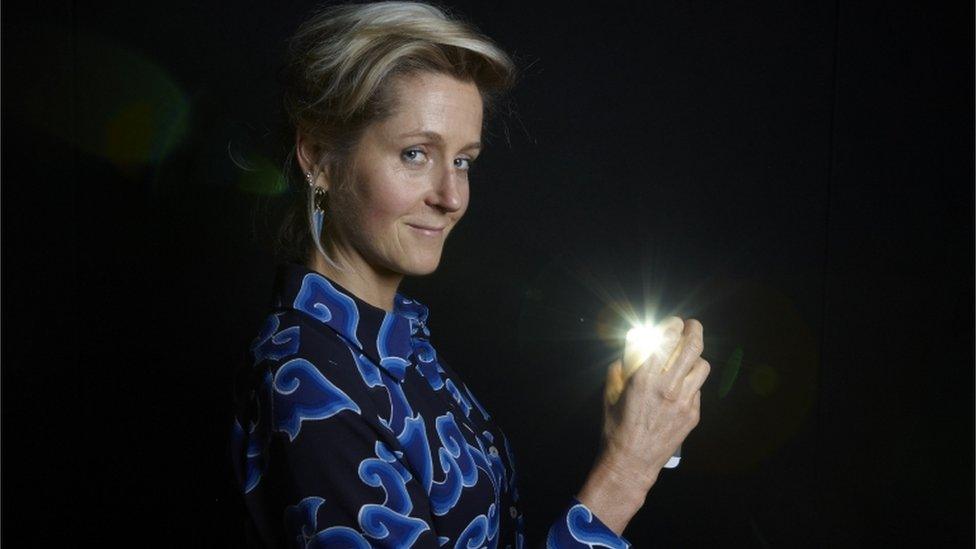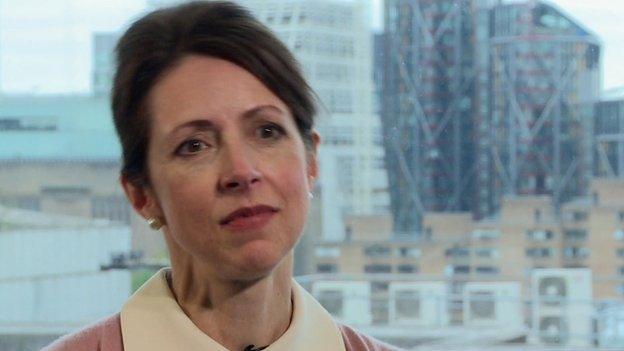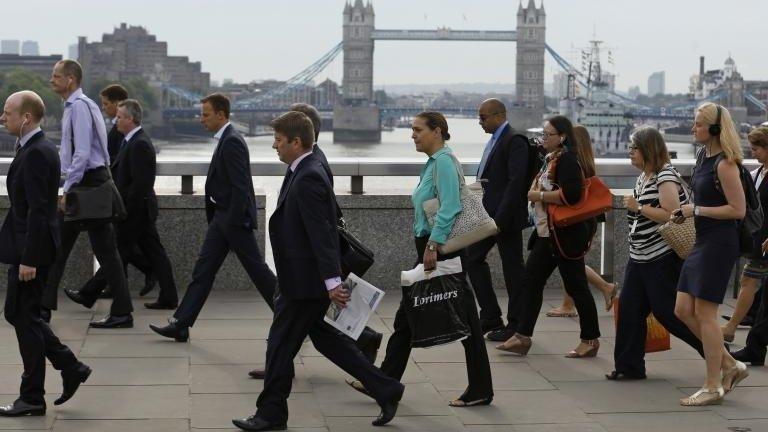Davies report says no more all-male boards on FTSE 100
- Published
- comments

Martha Lane Fox is on the board of FTSE 100 company Marks and Spencer
UK top companies have reached a "major milestone" in increasing the number of women in their boardrooms, but more needs to be done, a report says.
There are no more all male board in FTSE 100 companies says the report's , externalauthor, former trade minister Lord Davies.
FTSE 100 firms met a voluntary target of 25% of women board members.
But he says this should now replaced by a new target of 33% of women board members at FTSE 350 firms by 2020.
In 2011, women made up 12.5% of board members.
Lord Davies said that there had been a "steady and sustained increase" since then.
He cautioned against the introduction of legally enforced quotas to guarantee a female presence on boards, describing them as "unwarranted".
On the Today Programme, Lord Davies was asked why 260 of the 286 women on the boards of FTSE 100 companies are non-executives. Non-executive board members are involved in the policy making decisions for the business but not in the day to day operations.
"The focus of our work was on fixing the boardroom. We've done that and there's very few all-male boards left," Lord Davies he said.
"We now need to see the same change, through a voluntary approach, in the executive committee structure of big companies and small companies."
But Shainaz Firfiray, an assistant professor at Warwick Business School warned that setting quotas was not be enough to fix the boardroom gender gap: "It may not be enough for companies to simply appoint women to board positions in response to external pressures.
"Prior research has shown that women who succeed in typically male tasks such as leadership positions are more disliked and derogated, implying that women confront obstacles in work settings that are not encountered by men to the same degree."
She said diligent management was needed to ensure their appointments were effective.
'Significant effort'
Lord Davies said in his latest report that the next five years should see "substantive and sustainable improvement in women's representation on boards of FTSE 350 companies".
"Following five years of significant effort on the part of the biggest FTSE boards, all FTSE-listed companies should be taking action," he added.
The government has already said it plans to bring in a target to include women on the boards of all the UK's top 350 companies.
This will come as part of a series of "equality-boosting measures" which it hopes to introduce in the first half of 2016.
Doubling up
The role of a non-executive is to keep the management in check and look out for the interests of shareholders .
They are intended to be independent and differ from executives in that they do not work solely for the company and often serve on multiple boards. This is true of both men and women.
The report counts positions held by women not individuals, so women who serve on more than on board would have been counted multiple times.
Several female non-executive board members serve on more than one FTSE 100 board, including Jasmine Whitbread, who serves on the boards of BT and Standard Chartered and Mary Harris on the boards of ITV and household products giant Reckitt Benckiser.
According to executive search firm Audeliss, though if current trends continue many female non-executive directors may leave their boards in the next 18 months as their terms expire.
Audeliss said that that could mean a drop in the number of top women non-executive directors to 17%.
- Published25 October 2015

- Published25 March 2015

- Published11 February 2015

- Published26 November 2014

- Published26 March 2014
